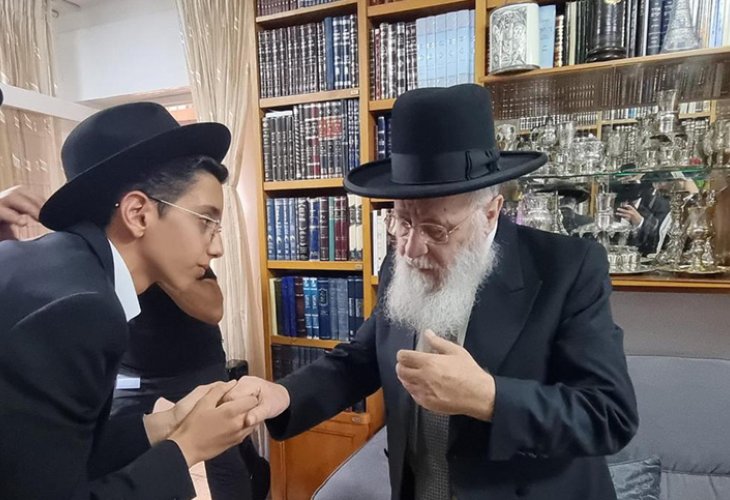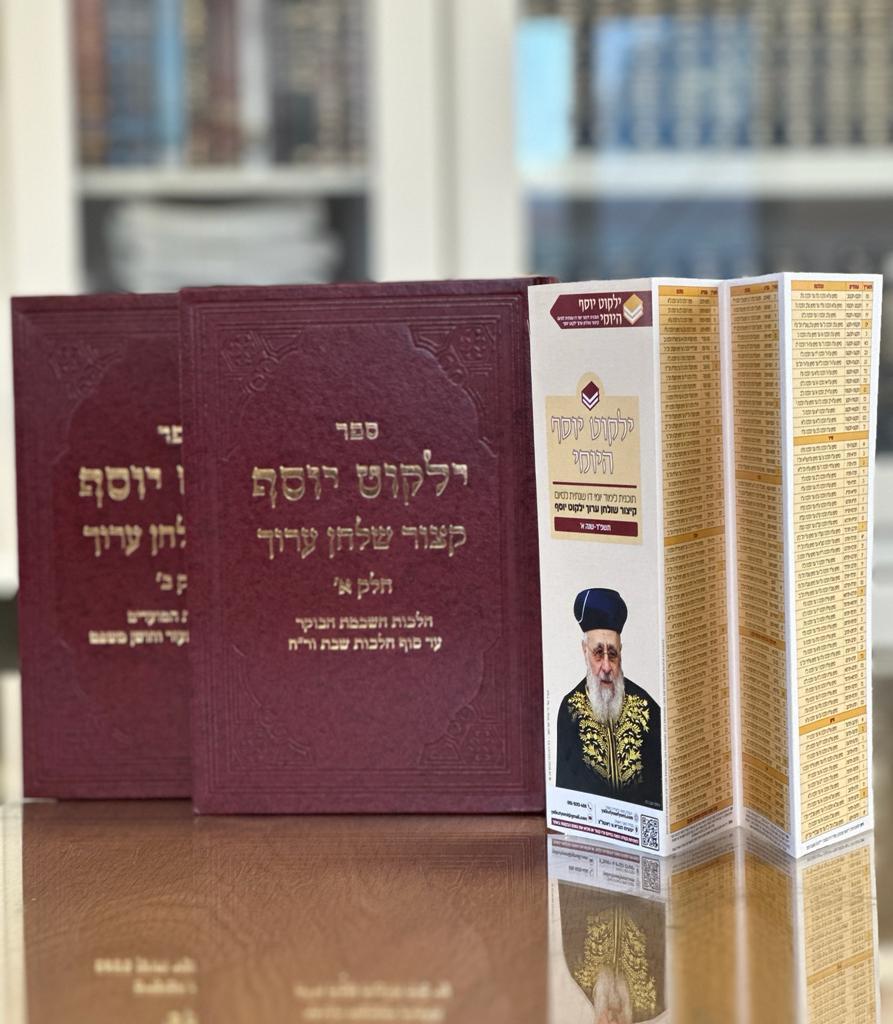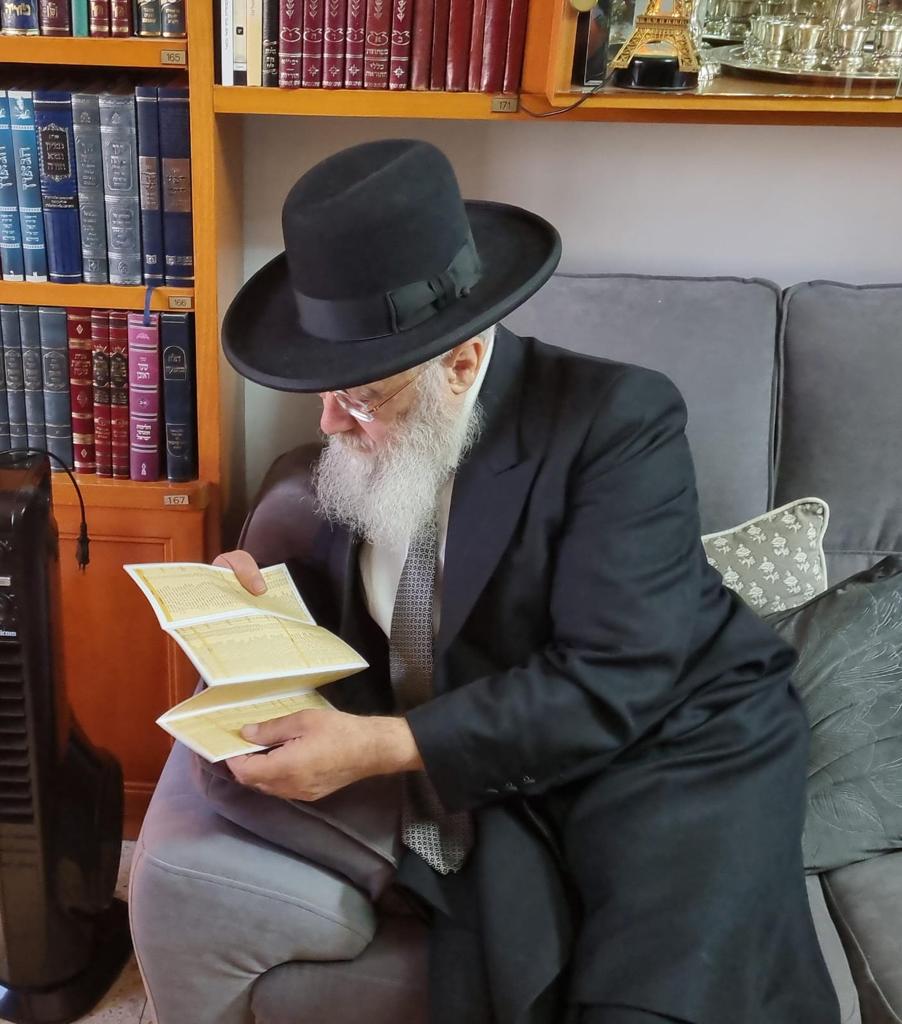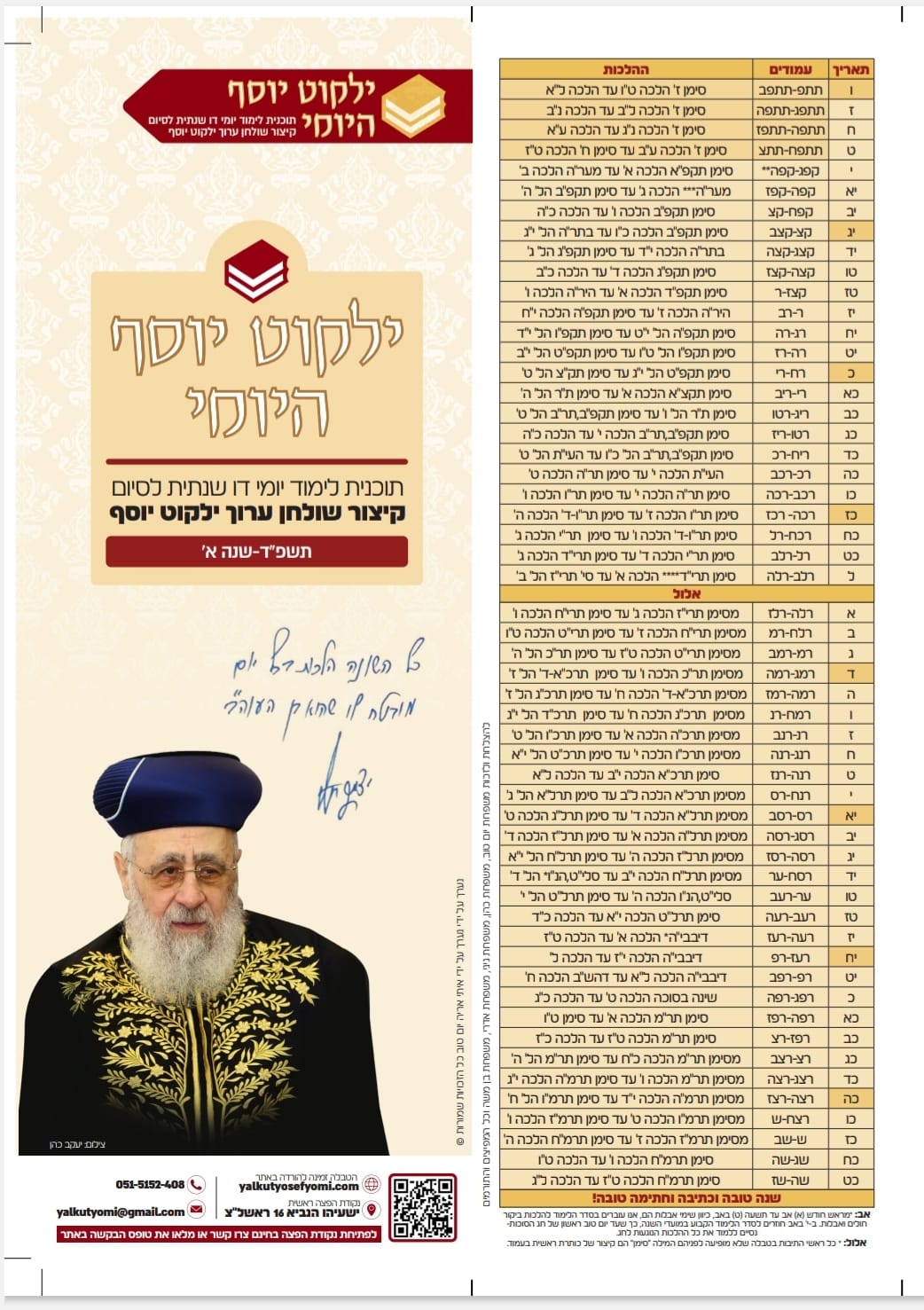The 14-Year-Old Behind the Massive Study Project: "If Hashem Sent Me an Idea, It's My Duty to Implement It"
Ittai Yom Tov is just 14 years old, yet he is busy promoting a large daily study project from the book 'Daily Yalkut Yosef'. "When I met Rabbi Yitzhak Yosef, he was very impressed, and it gave me a lot of strength," he shares excitedly. But where did the idea come from?
 (Photo: Asher Hajbi)
(Photo: Asher Hajbi)When Ittai Yom Tov introduces himself, he sounds a bit embarrassed. "I am a yeshiva student, 14 years old, trying hard to comply with the standards and schedules of the yeshiva, and in my spare time, I manage the 'Daily Yalkut Yosef' project."
He speaks as if it's self-evident, as if it's normal and ordinary for a 14-year-old to head a project that will accompany tens of thousands of people from all over the country over the next two years, who thanks to him will complete the study of the Yalkut Yosef book on the Short Shulchan Aruch.
 (Photo: Asher Hajbi)
(Photo: Asher Hajbi)
A Child's Idea
"It all started about three months ago," Ittai shares, "In those days, I had a very strong desire to study the book 'Yalkut Yosef' on the Short Shulchan Aruch and finish it completely before I got to yeshiva. I knew I was going to study in an Ashkenazi yeshiva, and as someone who follows the Sephardic tradition, I wanted to be aware of the things that are permitted and forbidden to me, especially topics that aren't taught at yeshiva. I decided to learn a few halachot each day, but the decision didn't hold up. I couldn't maintain consistency and didn't manage to set a regular pace for myself."
"That disappointed me a lot," he admits, "so I went to my grandfather, Rabbi Aryeh Cohen, and asked him if he knew of a study order that would allow me to learn the halachot and know there is a defined date by which I would finish the study. My grandfather looked at me a bit surprised. He paused for a few seconds and finally asked me, 'How is it possible that such a thing hasn't been done until today? After all, the 'Yalkut Yosef' has existed for thirty years.' I asked my grandfather, 'Maybe we should do it?' and he replied, 'Nice idea, start working on it.' I didn't quite understand how exactly, but I decided to try. I opened the two volumes of the book and tried to calculate how many halachot a Jew could learn each day, in a way that would conclude in just five minutes. I calculated that within two years of such study, according to the order, it would be possible to finish the two volumes."
 (Photo: Asher Hajbi)
(Photo: Asher Hajbi)Ittai pauses his speech for a moment and explains excitedly: "We're talking about the most important halachot by which we run our lives as Jews, and this is essentially the important characteristic of every Jew because the halachot are what distinguish and define him from other nations in the world. I believe everyone strives to be proficient in halachot, but it's hard to find the time to invest in it. This idea we're trying to make accessible here is exactly the solution. It's the answer for every Jew who wants to sanctify every moment in his life and be knowledgeable in halacha."
And why did you decide to spread the study over two years specifically?
"I was looking for the period of time that would allow the daily learning to be binding on the one hand and not too demanding on the other. The way I divided the study, you feel like you don't need to 'make time' to learn, but can do it 'on the way'. Then I moved on to the physical phase of dividing the pages: I opened the book and checked in which topics it would be possible to study two pages and when it would be possible to cover two and a half or three. In the second volume of the book, there are references to festivals and holidays, and I tried to divide it in such a way that the study of these topics would be as close as possible to the dates of the holidays in the year itself."

Fulfilling the Privilege
For the past three months, Ittai has dedicated every moment of his time to promoting the project, and today he is satisfied to report that tens of thousands of bookmarks have been printed with the daily study table for the next two years, and a special website has also been launched where the digital table can be downloaded, free of charge, of course.
"But this is not the end of my work, but just the beginning," he clarifies, "because now the main work of the project remains, and that is to make it accessible to people, so they know it exists. My goal is to reach as many people as possible and just inform them, to ensure no one inadvertently misses out on this study, just because they haven't heard about it."
How do you plan to achieve this?
"Currently, the project is spreading mainly by word of mouth and on social networks, and the responses are numerous, some from people who asked themselves to distribute the table. Therefore, even before we managed to distribute the table, we already have a list of dozens of distributors across the country. It turns out that people like to merit the public and want to merit doing good. This is also the place to call on everyone reading these lines: there is no reason why you should not join such a project, and perhaps even become one of the distributors yourself. The upcoming Rosh Hashanah will be the first day of the project's start, and I am sure that no one wants to miss out on this tremendous privilege."
And one cannot help but ask: you're just a young boy, where do you get the courage to lead such a massive project?
"I'll tell you the truth: I've learned in my life that there's no reason to be ashamed of a good thing you're doing, and certainly not to avoid something that can benefit others because you're afraid people will wonder about you. I believe that if Hashem sent me such an idea from heaven, it's my duty to implement it, and in any case, it's not the age that matters but the goal. Once the intention is for the sake of heaven, what does it matter by whom the thing is done?
"And the most important thing that gives me strength is the conversation I was privileged to have with Rabbi Yitzhak Yosef shlit'a. I arrived with my father, told him about the project, and the Rabbi was very impressed by the idea and execution. Then I asked for the Rabbi's opinion, and he smiled at me and said 'Excellent idea.' It was evident that he was happy to hear about it, and he even wrote a warm recommendation letter calling on everyone to take part in the project. This response greatly encouraged me and gave me the strength and desire to continue what I had already started."

